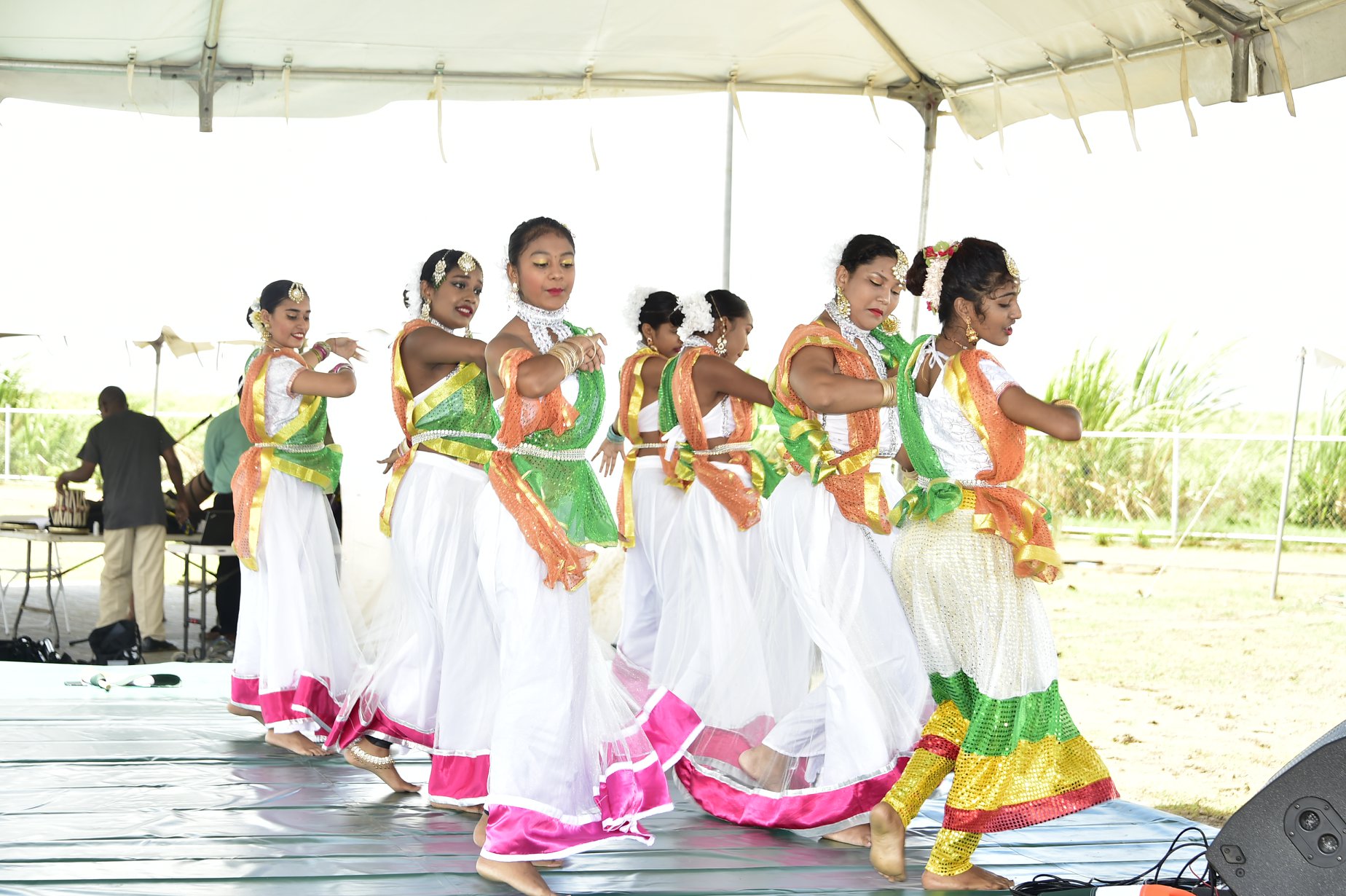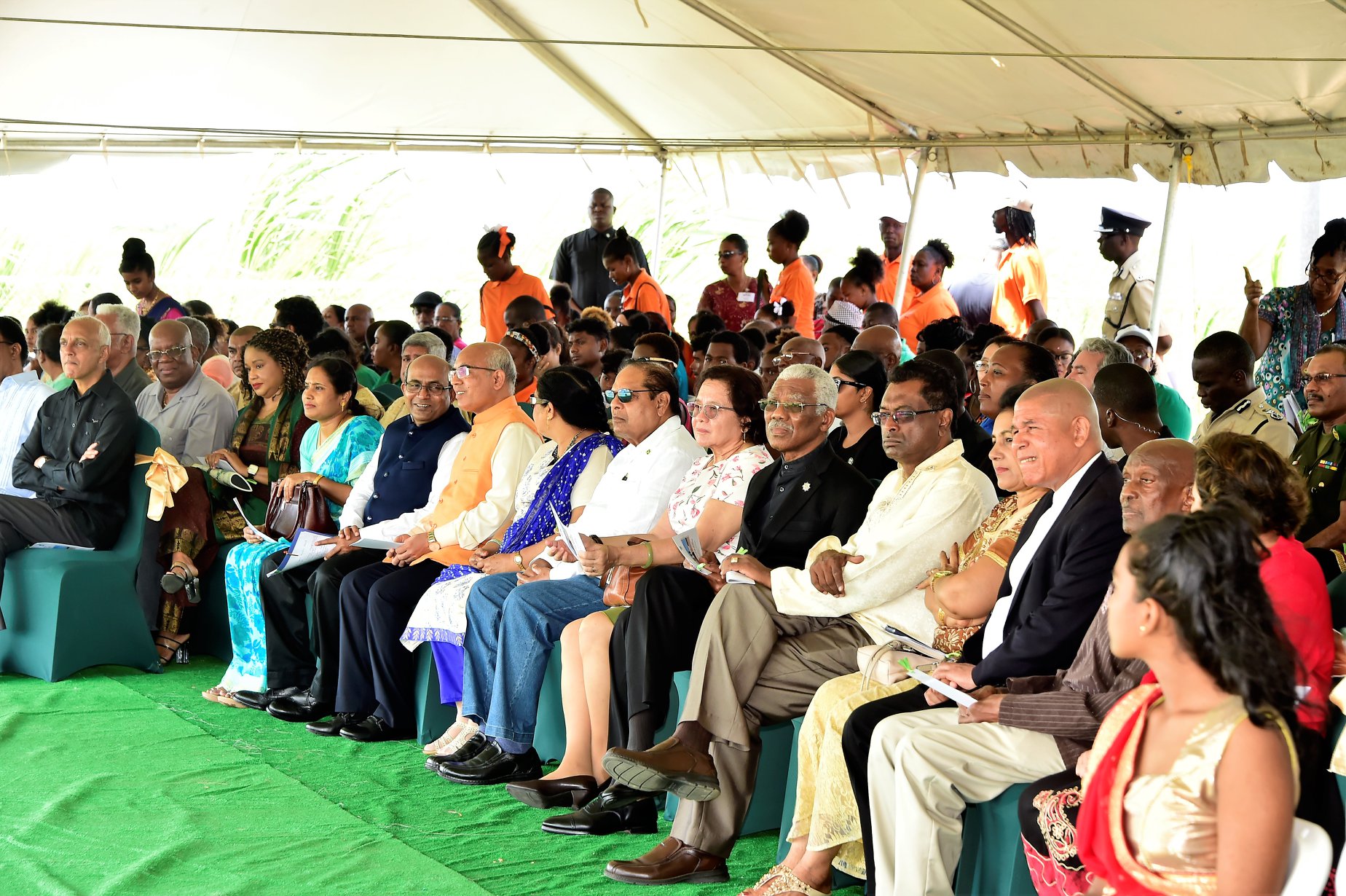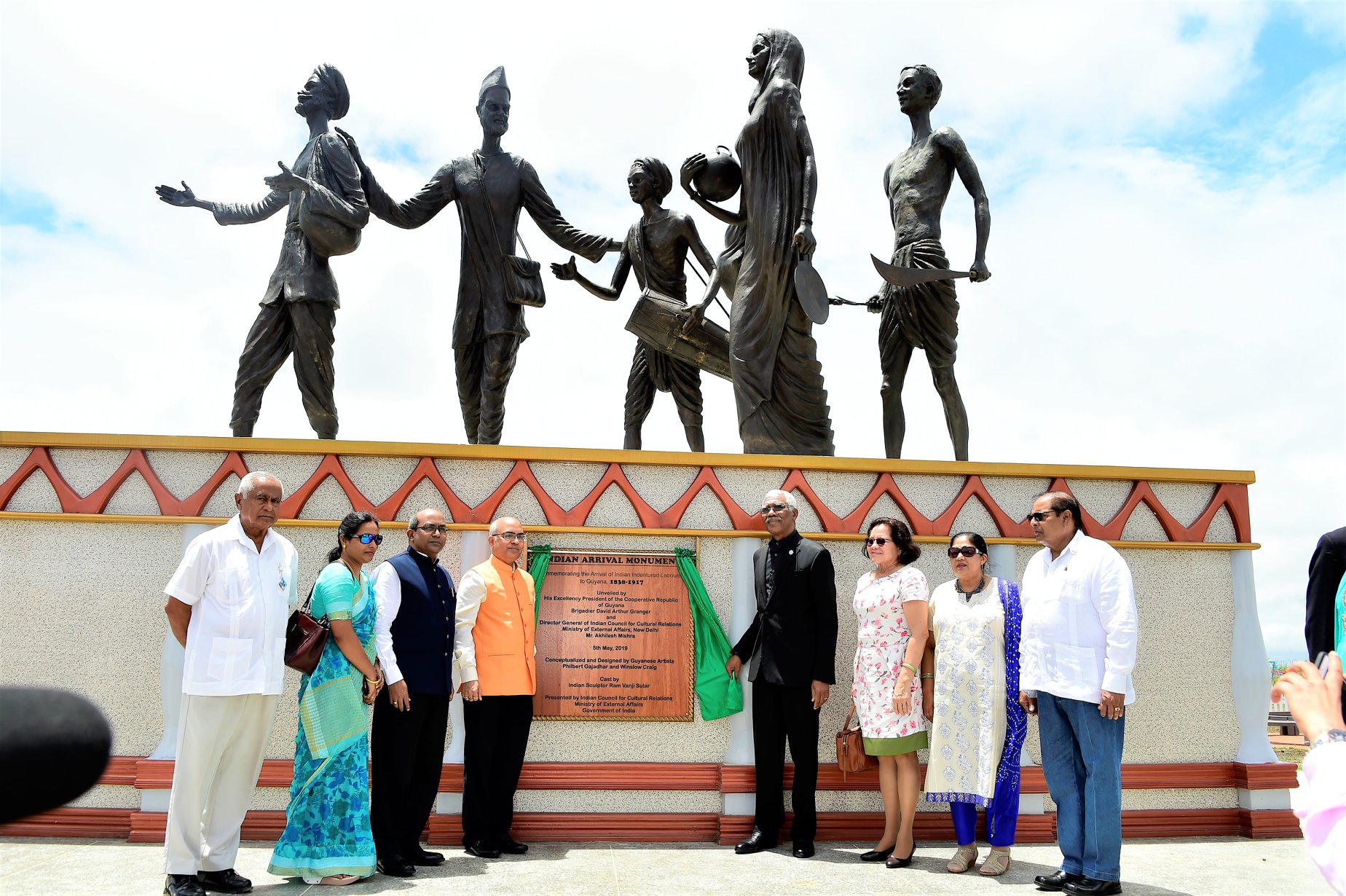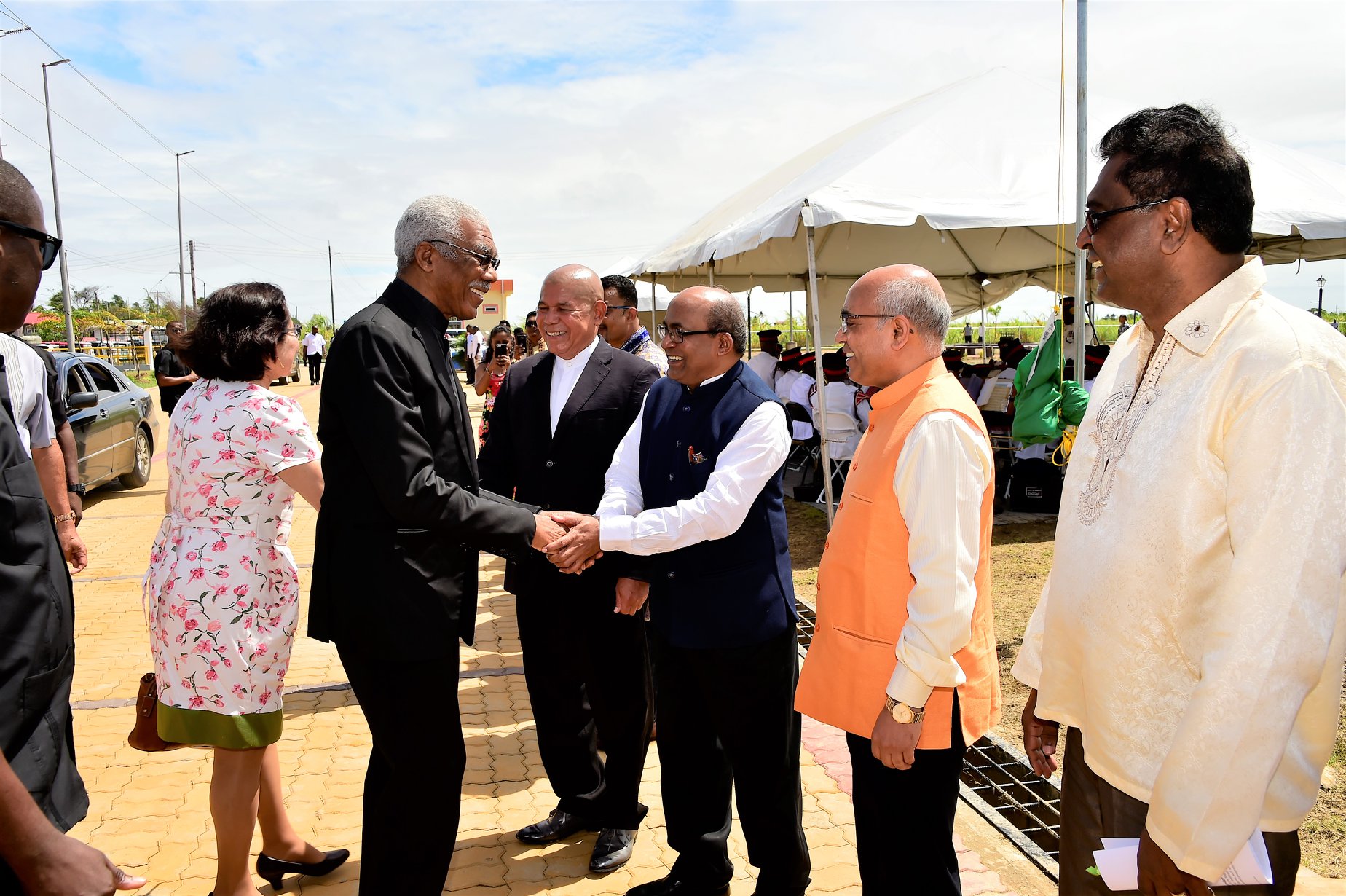Indian Immigration Monument commissioned by President
The Indian Immigration Monument at Palmyra was today commissioned by President David Granger.
The President said in part: “The Indian Arrival Monument recalls the Indian indentured experience. It celebrates the migrants’ resistance, resilience and resourcefulness. It attests to the immigrants’ sacrifices, struggle and the pursuit of a good life.
“Indians have made indelible contributions to the nation’s cultural, economic, political and social development. These contributions have ensured the community’s progress and has advanced the nation’s development.
“Indians, as others before them, were confronted by the abuse, cruelty and domination of plantation life and they resisted, sometimes by riots and strikes.
“Our coastland is littered with memorials to the martyrs of plantation riots – at Devonshire Castle, Enmore and Rose Hall and other sites yet unmarked at Leonora, Non-Pariel, Nooten Zuil, Ruimveldt and elsewhere – where Indian labourers were killed. We must not forget their sacrifice.
“Indians protested and were punished but they persevered. They explored avenues of economic enterprise off the plantations after their indentures ended, as did the Africans, Portuguese and Chinese before them. Resistance culminated, eventually, in the decision to abolish indentured immigration in 1917.
“Indian contributions to the economy are unquestionable. Indians who began arriving even before the abolition of African enslavement in 1838 became, eventually, the main source of labour in the sugar and rice industries. They have helped to sustain these pillars of our economy for more than 180 years.
“Indian resourcefulness contributed, also, to the diversification of the rural economy through the development of cattle-rearing, cash crop and coconut cultivation, paddy-growing, rice-milling and fishing.
“Village economies and settlements – and their skills as bakers, boatmen, charcoal-burners, chemists, fishermen, goldsmiths, hucksters, milk and sweetmeat vendors, shopkeepers and tailors, skills they brought from India – helped to reshape the Guyanese rural, economic and social landscape.
“Indians, to a significant degree, became a considerable commercial and landowning class after they quit the plantations. Some, through thrift and industry, became part of a thriving business élite.
“Some opened new areas of production along the banks of rivers and creeks and in the islands of the Essequibo. Many acquired land and established villages and communities. Their economic enterprise expanded the economy and generated a demand for education and skills.
“The descendants of Indian immigrants distinguished themselves in every field of human endeavour. Many excelled in academia, agriculture, accounting, the arts, business, diplomacy, education, engineering, law enforcement, legal services, medicine, military service, politics, the public service, sport and trade unionism.
“Indians who have enriched every sector of society ― academics, Clem Seecharan and Rupert Roopnaraine; attorneys, Edward Alfred Luckhoo and Stanley Hardyal; businessmen, Sattaur Gafoor and Lyla Kissoon; diplomats, Sir Shridath Ramphal and Sir Lionel Luckhoo; doctors, Balwant Singh and Deborah Persaud; trade unionists Ayube Edun and Joseph Latchmansingh; public servants, Eshwar Persaud and Lloyd Searwar; religious leaders Reepu Daman Persaud, Faizal Ferouz and Benedict Singh, cultural champions, Rajkumarie Singh and Lakshmi Kallicharran and sportsmen Rohan Kanhai and Shivnarine Chanderpaul ― all of whom are excellent examples of Guyanese of Indian descent who attained eminence in professional and public life.
“Indians are integral to our multicultural state. They, together with other ethnic groups, have generated the cultural, economic and social diversity we recognise today as the Guyanese nation. They have contributed to a common culture of tolerance and mutual respect which has laid the basis, today, for the creation of a more cohesive and inclusive state.
“Indians are integral to our inclusive future and always will be. Development will be retarded unless every citizen feels a sense of belonging and enjoys equality of opportunity.
“An inclusive future involves increased integration. It is predicated on respectful relations among all of our people. Guyana’s future must be one in which our children and grandchildren could live in a cohesive state, one in which they could enjoy a good life which our forefathers sought”.





